So you want to make your electric guitar sound metal? It’s not as difficult as you might think! In this comprehensive guide, we will answer common questions and provide helpful tips on how to get the most out of your electric guitar. We’ll discuss everything from amps and pedals to guitars and techniques, so that you can start creating metal sounds that will blow your audience away!
Table of Contents
Amp Settings for Metal
First and foremost, when it comes to electric guitars, metal is all about distortion. So the most important thing you can do to make your guitar sound metal is to set your amp up for distortion. This means cranking the gain and volume controls until the sound is nice and murky. The exact settings will vary depending on the type of amp you’re using, but in general, you want the cleanest possible tone with as much distortion as you can handle.
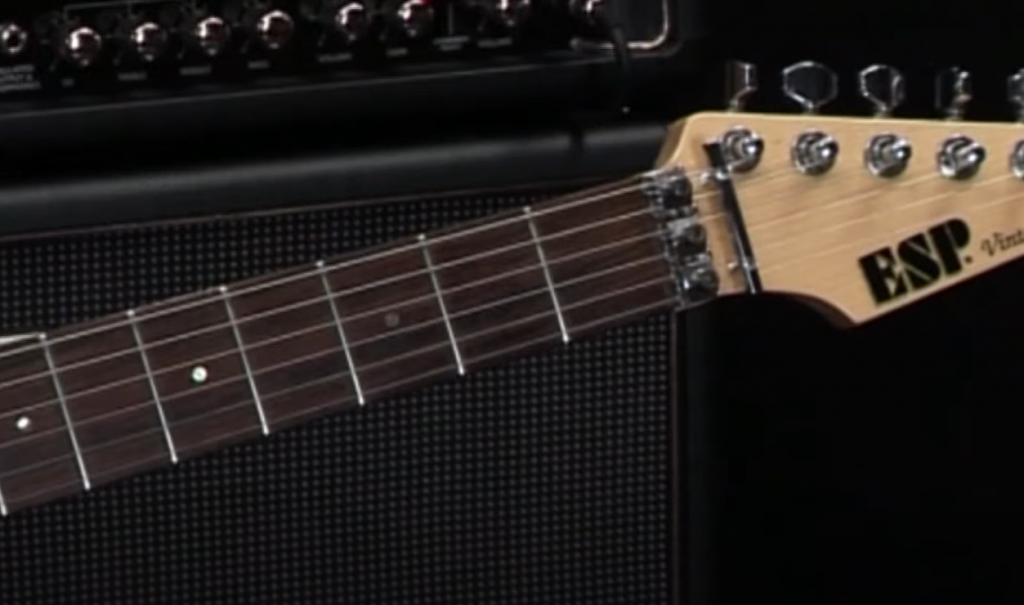
Of course, once you’ve got your amp dialed in to create a distorted sound, there are other factors that come into play. For instance, the type of pickups you have on your guitar will make a big difference in how metal-sounding your final tone is. And of course, your playing style will also have a major impact. But we’ll get to all that in a minute.[1]
For now, let’s talk about how to set up your amp for metal.
Gain
Gain staging is one of the most important aspects of getting a good metal tone.
What is gain staging? Simply put, it’s the process of setting the levels of your guitar signal at each stage so that they’re all working together to give you the best possible sound.
If you want to make your electric guitar sound metal, you need to pay attention to gain staging. Here are some tips on how to do it:
- Start with your guitar’s volume knob set to around seven or eight. This will give you a good starting point for setting the rest of your levels.
- Set your amp’s clean channel gain so that it’s just below the point where it starts to break up. You don’t want to go into full-on distortion just yet – we’ll get there later.
- Now it’s time to set your distortion pedal’s level. Start with the gain knob set to around two or three and work from there.
- The last thing you need to do is set the level of your amp’s output. This should be set so that it’s just below the point where it starts to clip.
Bass
Bass is an important part of metal music – it provides the low end that gives the music its heaviness. If you’re looking to make your guitar sound metal, you’ll need to pay attention to your bass tone.
There are a few things you can do to get a good metal bass tone:
- Use a distortion pedal specifically designed for bass. This will give you the high gain sound you’re looking for.
- Play with the EQ controls on your amp or pedal. Boosting the low frequencies will give you a heavier sound.
- Use a pick instead of your fingers. This will help you get a sharper, more defined sound.
Mids
To get a metal sound out of your electric guitar, you’ll need to turn up the mids. This will give your guitar a cutting, aggressive tone that is perfect for metal. You can do this by turning up the mid knob on your amplifier, or by using a midrange boost pedal.
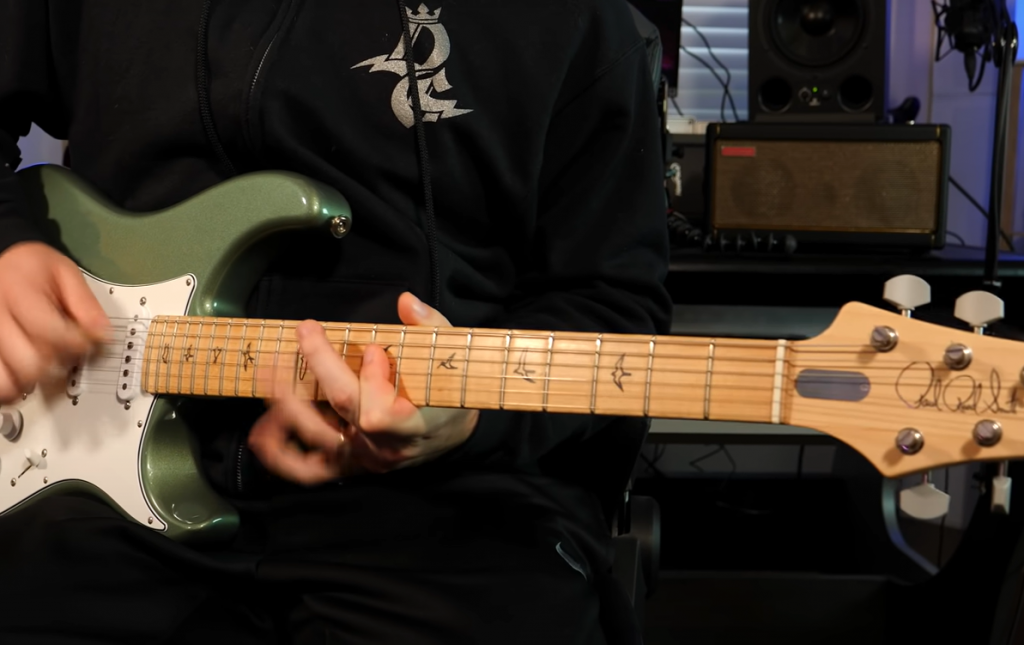
If you’re using an amp with a clean channel, you might also want to add some distortion. This will help to thicken up your sound and make it more aggressive. There are many different types of distortion pedals available, so experiment with different ones until you find the sound you’re looking for.
Treble
The first thing you need to do to make your electric guitar sound metal is to turn up the treble. This will give your guitar a sharper, more aggressive sound. You may also want to add a bit of distortion to really bring out the metal sound.
EQ
If you want to make your electric guitar sound metal, you need to use EQ. EQ is short for “equalization.” Equalization is the process of adjusting the balance between different frequencies in an audio signal.
First, you’ll want to boost the low end frequencies. This will give your guitar a heavier, more powerful sound. You can do this by turning up the bass knob on your amp or by using a bass boost pedal. Second, you’ll want to cut back on some of the midrange frequencies. This will help reduce moodiness and make your guitar sound clearer and sharper. Finally, you’ll want to boost the high end frequencies. This will give your guitar a brighter, more cutting sound. You can do this by turning up the treble knob on your amp or by using a treble boost pedal. Keep in mind that you don’t want to go too crazy with EQ. You still want your guitar to sound like a guitar, not like a metal machine! A little bit of EQ can go a long way. Play around with it until you find the perfect balance for your sound.[1] The first step is to make sure that your guitar is properly set up. If the strings are too high off the fretboard, it can cause a “muddy” sound. You also want to check your intonation (the tuning of the strings). If the intonation is off, it can cause your guitar to sound “out of tune” even if you’re playing all the notes correctly. If your tone still sounds muddy or muffled after checking these things, there are a few other possible causes: If you’re still having trouble, there are lots of great resources online that can help you troubleshoot your tone.[1] One of the most common problems that guitarists have when trying to make an electric guitar sound metal is feedback issues. Feedback happens when the sound from your amp gets picked up by your guitar’s pickups and then amplified again, causing a shrill, high-pitched squealing noise. There are a few things that you can do to help reduce or eliminate feedback: If you’re having trouble with feedback, don’t worry – you’re not alone. Even the most experienced guitarists have to deal with it from time to time. Just remember that it’s part of the process and try not to let it frustrate you. If your tone is sounding thin, brittle or weak then there are a few things you can do to fatten it up. The first is to check the pickups. If they are single coils then you might want to try some humbuckers, or even just change the positioning of the pickups. If they are already humbuckers then you could try different ones, or experiment with coil tapping. Another thing you can do is to change the strings. Heavier gauge strings will usually give you a thicker sound. Finally, you can try using a distortion pedal to add some grit and thickness to your tone. [1] The next thing you’ll want to do is adjust your pickups. If you have a humbucker, you’ll want to split it so that only one coil is active. This will give you a thinner, more aggressive sound. If you have single coils, you’ll want to crank up the gain and distortion. You might also want to experiment with different pickup combinations. Another thing to keep in mind is that metal guitars usually have a lot of low end. So if your guitar sounds too thin, you might want to try using a heavier gauge string. And if it sounds too muddy, you can try using a lighter gauge string. Finally, you’ll want to make sure your action is set low. This will help you get those fast, shredding solos that metal is known for. So there you have it! These are just a few tips on how to make your electric guitar sound metal. Experiment with different settings and see what works best for you. And don’t be afraid to crank up the gain and distortion![4] There are a few essential effects pedals that you’ll need to create a metal tone. Fixing Common Problems
Muddy and Muffled Tone
Feedback Issues
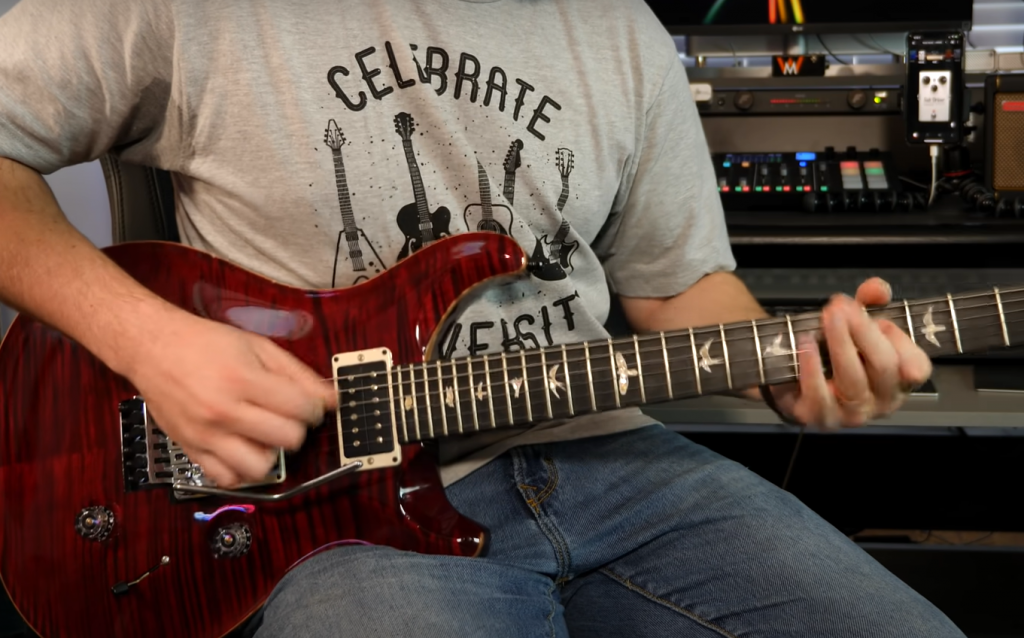
Thin, Brittle or Weak Tone
Pickup Settings
Effects Pedals
To get started, you’ll need to invest in a good amplifier. Metal guitarists typically use amplifiers with high wattage and lots of gain. This will help you achieve the signature metal sound: loud, distorted, and powerful.[3]
The Technique
Palm Muting
One of the most important techniques for making an electric guitar sound metal is palm muting. This technique is used to create a percussive, staccato sound on the guitar. To do this, you will need to place your picking hand in the middle of the strings and then use your fretting hand to mute the strings. This can be done by either resting your palm on the bridge or by using your thumb to mute the strings.[3]
Alternate Picking
Alternate picking is a popular technique used by guitarists to make fast runs sound more articulate and even. When alternate picking, you simply pick each note with an upstroke followed by a downstroke in quick succession. So, if you were playing a simple scale run starting on an upstroke, your next pick would be a downstroke on the note below it. You would then continue this pattern of up-down-up-down as you played through the scale.
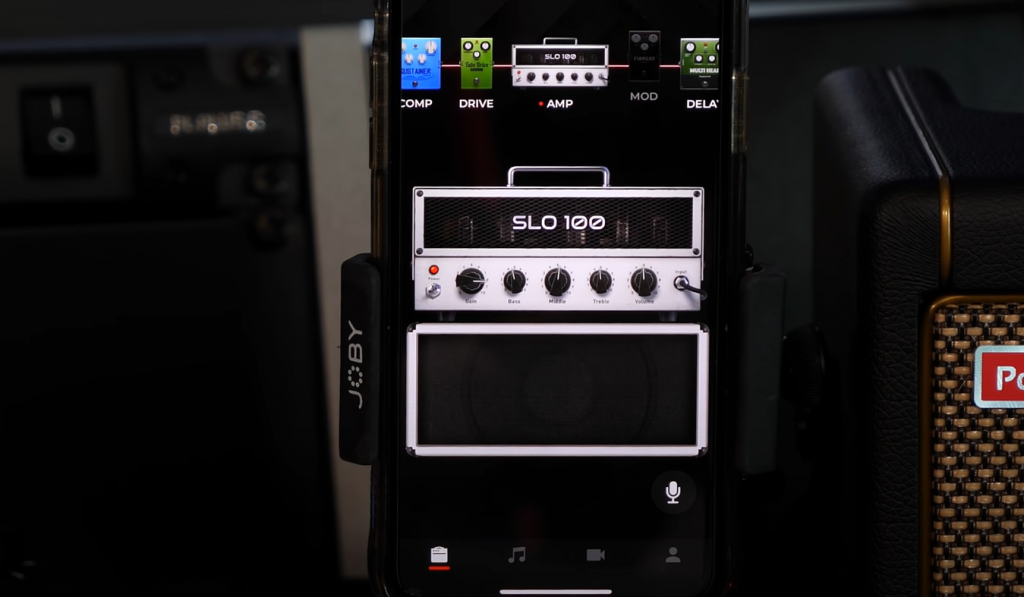
The main benefit of using alternate picking is that it allows you to play faster without sacrificing accuracy or sounding sloppy. If you’re just starting out, focus on getting comfortable with this technique before moving on to anything else. Once you have alternate picking down, you can start to experiment with other picking techniques to find what works best for you.[3]
Should I Use an Amp or Effects Pedal to Get the Best Metal Sound
A lot of guitarists will ask whether they should use an amp or effects pedal to get the best metal sound. The answer is that it depends on what you’re looking for. If you want a heavier, more distorted sound, then an amp is probably your best bet. However, if you’re looking for a more subtle metal sound, then an effects pedal might be a better option.[2]
There are a few different types of amps that are popular among metal guitarists. These include tube amps, solid-state amps, and modeling amps. Each type of amp has its own strengths and weaknesses, so it’s important to choose the one that’s right for you.
Tube amps are known for their warm, rich tone. They’re also fairly versatile, so they can be used for a variety of genres. However, they’re also quite expensive, so they might not be the best option if you’re just starting out.
Solid-state amps are a good middle ground between tube amps and modeling amps. They offer a decent amount of power and distortion, without being too expensive. However, they don’t tend to sound as good as tube amps.
Modeling amps are the most versatile type of amp on the market. They allow you to replicate the sound of different types of amplifiers, which can be helpful if you’re trying to find your own unique metal sound. However, they can be quite expensive, so they might not be the best option if you’re just starting out.
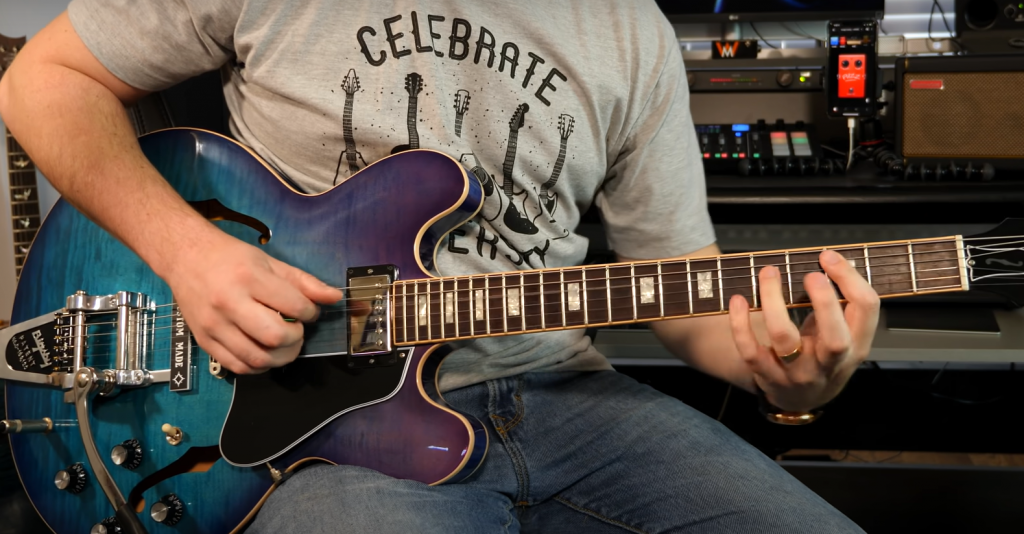
FAQ
Can U Get an electric guitar to sound like metal?
The answer is yes, you can make an electric guitar sound metal. There are a few things you need to do to make this happen, and we’ll go over them all in this comprehensive guide. We’ll start with the basics and move on to more advanced techniques as we go.
First, let’s talk about pickups. If you want your guitar to sound metal, you’re going to need high-output pickups. These will give your sound more power and distortion. You might also consider getting active pickups, which will give you even more control over your sound.
Next, you need to think about your amp settings. You’ll want to crank up the gain and volume to get that metal sound. You might also want to experiment with different EQ settings to find what sounds best to you.
Finally, don’t forget about your effects pedals. Distortion and overdrive pedals are essential for getting that metal sound. delay and reverb can also be used to create a more atmospheric sound. Experiment with different combinations of pedals to find the sound you’re looking for.
Now that you know the basics of how to make electric guitar sound metal, go out and start experimenting! Find the right combination of pickups, amps, effects, and techniques that work for you and start shredding!
How can I make my electric guitar sound electric?
There are a number of ways to make an electric guitar sound more metal. One common method is to use a distortion pedal to add grit and edge to your sound. Another popular option is to crank up the gain on your amplifier for a heavier, more aggressive tone. If you’re looking for even more metal tones, you can also try using a seven-string guitar or down-tuning your instrument for a deeper, darker sound.
No matter what methods you use to make your electric guitar sound more metal, the most important thing is to experiment and find the sounds that you like best. There’s no right or wrong way to do it – so get out there and start shredding!
Can a cheap electric guitar sound good?
The answer is yes, but it depends on what you’re looking for. If you want a guitar that sounds like metal, then you need to know how to make an electric guitar sound metal. There are a few things that you can do to achieve this goal.
First, let’s talk about pickups. Pickups are what create the sound of your guitar, so it’s important to choose the right ones. If you want a metal sound, then you should look for high-output pickups. These pickups will give you a lot of sustain and distortion.
Next, you need to set your amp properly. You should turn up the gain and use a high-gain amplifier setting. This will help you achieve the metal sound that you’re looking for.
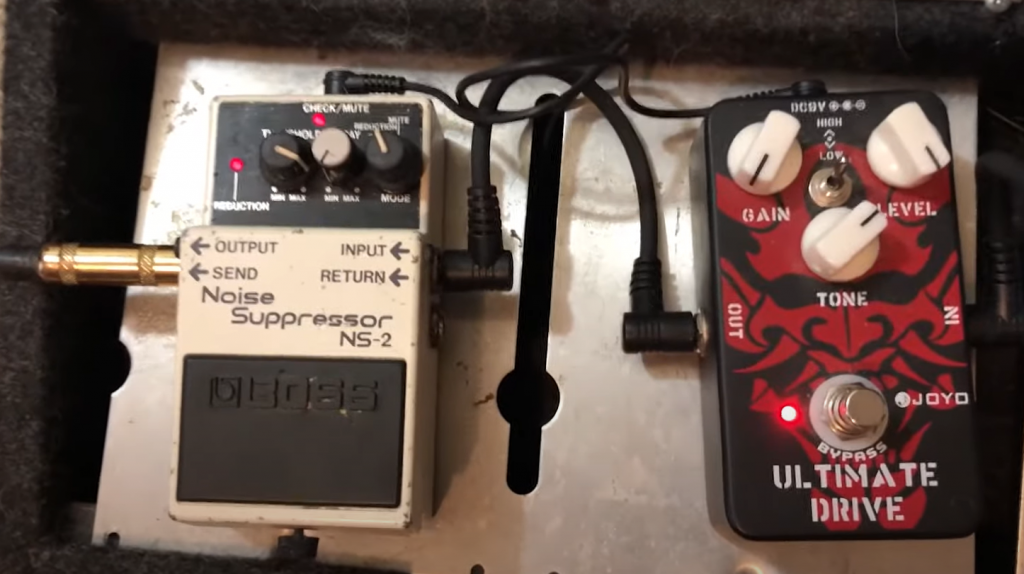
Finally, don’t forget about your effects pedals. Distortion and overdrive pedals are essential for getting a metal sound. If you use these pedals correctly, then you should be able to get the sound that you want.
How can I thicken my guitar tone?
One way to thicken your guitar tone is by using a distortion pedal. This will add more grit and thickness to your sound. Another way to achieve this is by using a heavier gauge of strings. This will create a fuller sound that will be perfect for metal. Finally, you can try using a higher gain setting on your amplifier. This will give you a more distorted and thick sound. Experiment with these settings until you find the perfect tone for your metal songs.
Another way to make your electric guitar sound metal is by using palm muting techniques. This technique is often used in metal songs to create a chugging sound. To do this, simply place your hand over the strings near the bridge of the guitar and strum the chords. This will create a muted sound that is perfect for metal songs.
Finally, you can add some effects to your guitar sound to make it more metal. Try using a wah pedal or a delay pedal to give your sound more depth. You can also try using a tremolo effect to create a more metal sound. Experiment with different effects until you find the perfect sound for your metal songs.
Useful Video: 3 EASY TIPS for KILLER Metal Guitar Tone | EQ, effects, settings help
Conclusion
Now that we’ve gone over the basics of how to make your electric guitar sound metal, it’s time to put these tips into practice and see what you can create! With a little bit of effort and some experimentation, you’ll be able to get that heavy metal sound that you’re looking for. So go forth and shred some faces!
References:
- https://prosoundhq.com/amp-settings-for-metal-ultimate-guide-with-examples/
- https://musicalscoop.com/how-to-make-your-guitar-sound-metal/
- https://guvnaguitars.com/how-to-make-electric-guitar-sound-metal/
- https://www.mozartproject.org/how-to-make-electric-guitar-sound-metal/

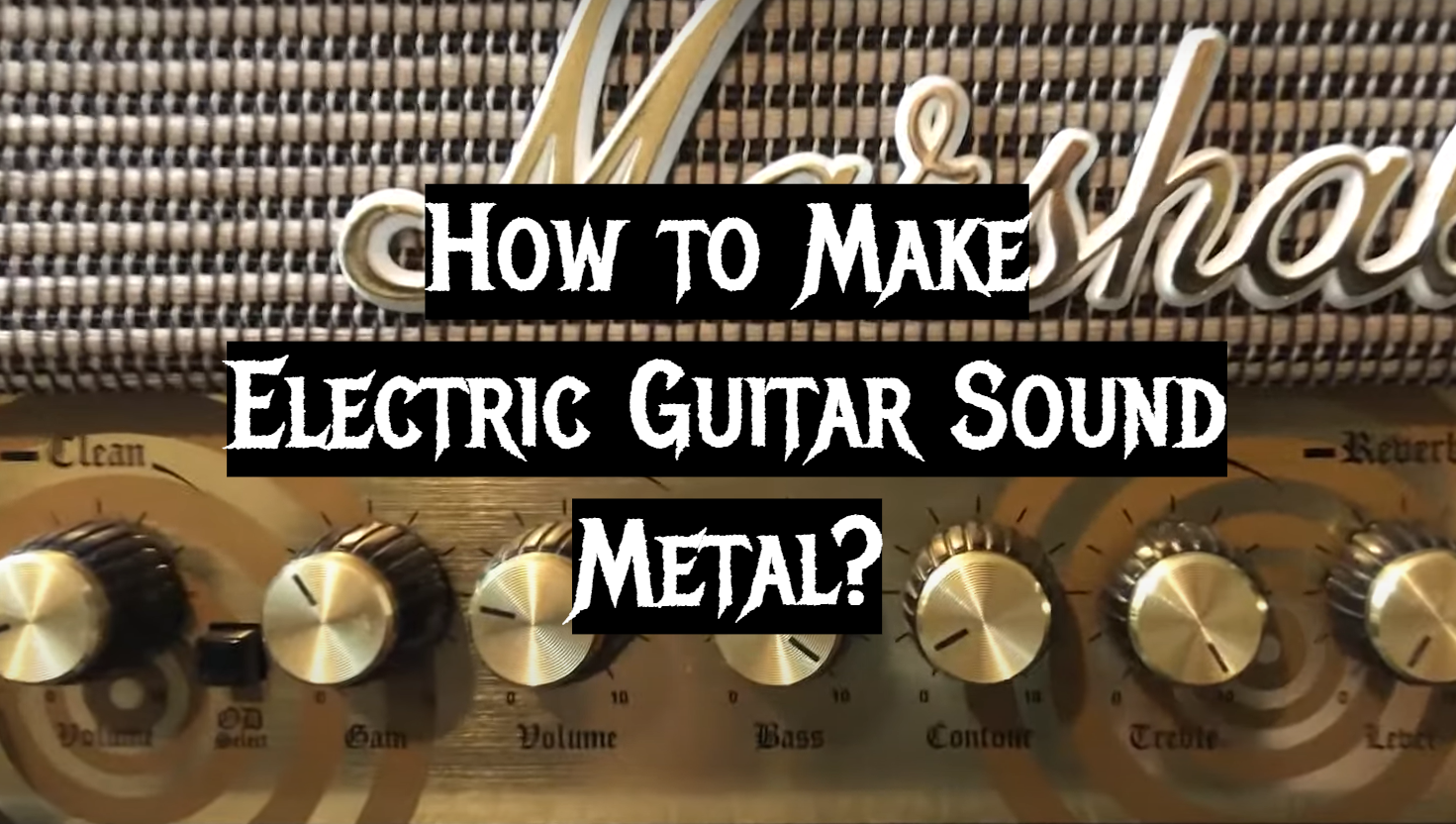




Leave a Reply